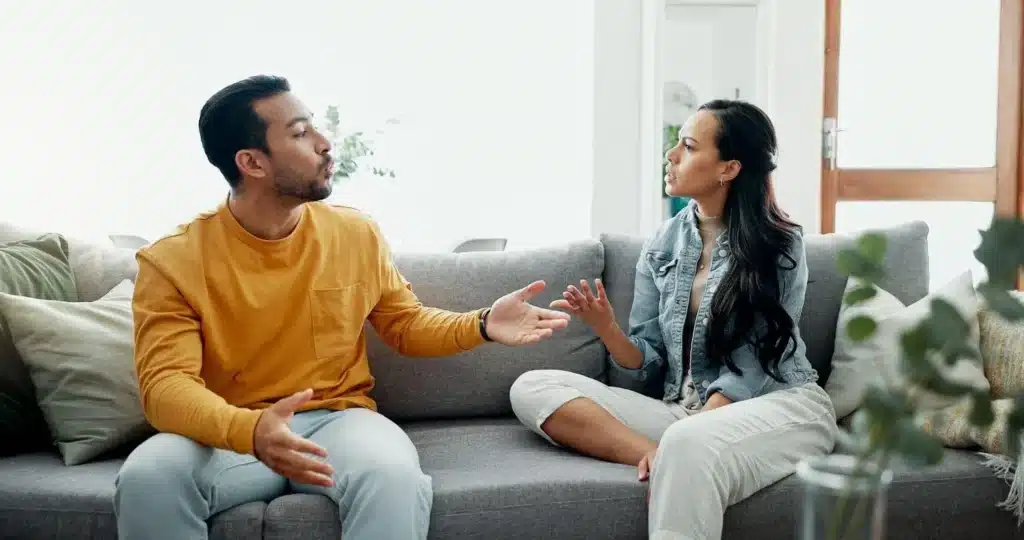Maybe you’re frustrated by some of your partner’s habits around the house. For example, they might not contribute to household chores, pick up after themselves or help with the children. These habits may have developed over time or have been existent from the beginning of the relationship. Or maybe they went unnoticeable until now. You may feel like it’s up to you to keep track of everything from paying your utility bills to ensuring that your pantry stays stocked. Sometimes, it might seem like you’re the only “adult” in the household and it’s your job to keep them in line. It’s a lot to manage and can feel increasingly overwhelming.
Alternatively, you might have fallen into a parenting dynamic with your partner because you find some of their lifestyle choices or communication habits frustrating, even if they’re not hurting you personally. Or as a parent, it feels easier to direct and fall into that role.
No matter the reason, parenting your partner does not benefit your relationship.
Whether you simply get irritated with some of their habits and hope they will change, or your partner is actively shirking their responsibilities, parenting your partner is not a long-term solution. Here’s why parenting your partner can be detrimental to your relationship.
1. Enabling Bad Habits
Perhaps you’ve fallen into parenting your partner because their lifestyle habits or lack of taking responsibility has negatively affected your well-being. They may not pick up after themselves, help with cooking, or take care of other key responsibilities. But if you try to coach them on these habits as a parent would to a child, it may enable them to continue the behaviours in the long run. They might not act without your prompting or reminding them, instead of simply understanding that they need to take care of these responsibilities independently.
2. Parent-Child Dynamic
If your relationship takes on a parent-child dynamic, you and your partner might cease to see each other in a romantic light. Instead, they may start thinking of you as a parental figure. You become someone who sets the rules and tells them what to do. Furthermore, you may start to think of your partner as childish and immature. This can snuff out the spark in your relationship and lead to a lack of attraction for one another.
3. Missing Out On Growth Opportunities
When you’re pouring your energy into “parenting” your partner, you’re missing out on opportunities to focus on your own growth. The same goes for your partner. If they’re only doing something because you’re pushing them to do it, they won’t gain a real sense of independence. Rather than growing together, you’ll both end up being held back.
4. Fosters Resentment
If you feel like you are responsible for your partner’s actions or maturity, you’ll only grow to resent them in the long run. Resentment can spell out the end of a romantic relationship. When you feel like you have to maintain your household all on your own, and your partner won’t pitch in without you “parenting them,” it’s almost inevitable that you’ll feel exhausted by this dynamic after a while. On the other hand, what if it’s simply a personality clash? If you feel like you need to discourage certain traits in your partner, your partner may start to resent you. They might sense that you’re trying to “change” them.
5. Condescension
What if you have legitimate reasons to be upset with your partner’s behavior or habits? Adopting the “parenting” approach to solving the problem can still come across as quite condescending to your partner. This might make them more resistant to adopting lifestyle changes, even if they would be beneficial. Instead of trying to parent your partner, it’s important to think about how you can come together to tackle these problems as equals. Approach it like parenting will pit you against each other instead.
Next Steps
Have you realized that you’ve been parenting your partner? Working with a skilled therapist can help with establishing healthy communication and providing a platform to address roles and responsibilities . Reach out to our office, Onyx Counselling and Psychology in Sherwood Park, to discuss your options for scheduling your first session for couples therapy.




